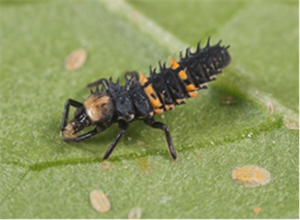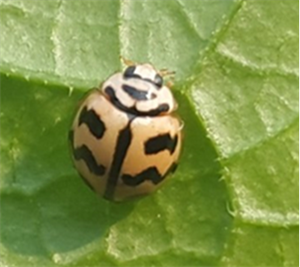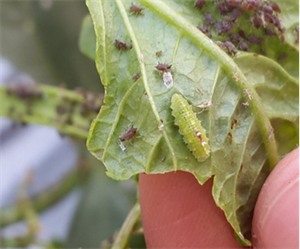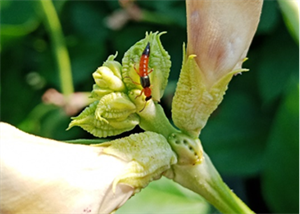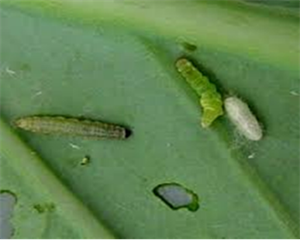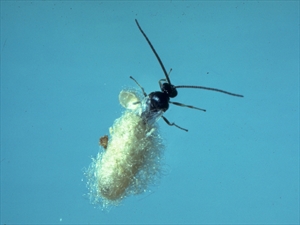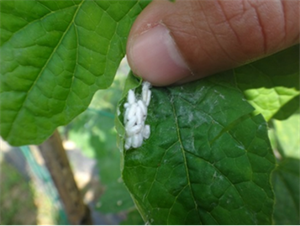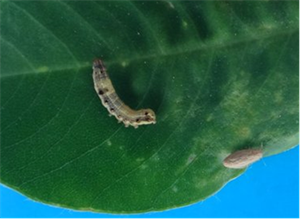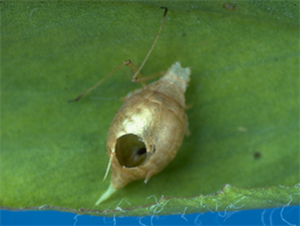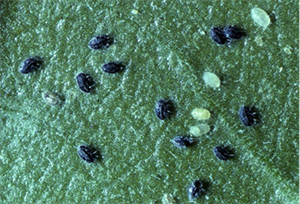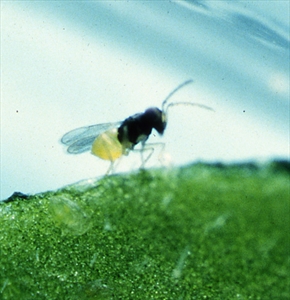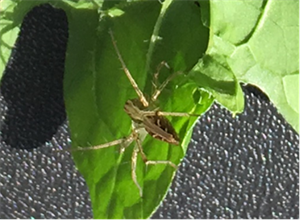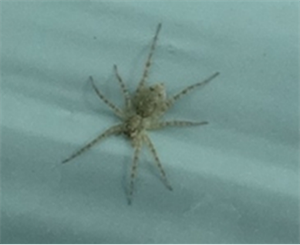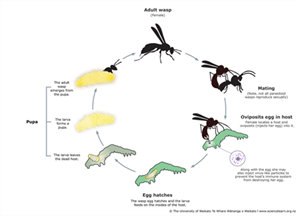- Common BCAs: ladybird beetles; hoverflies (syrphids); rove beetles; lacewings; wasps; & spiders.
- Conserve & attract BCAs:
- Avoid broad-spectrum pesticides
- Grow flowering plants near crops (especially brassicas) – they attract parasitoids
- Plant grasses near vegetables – they attract aphids, which attract predators
- Note, BCAs naturally find prey
- Check Table 1 for risk of pesticides to predators and parasitoids
- Use an IPM Decision Pathway to manage pests
- Scout the crop
- Id infestations & make records; are they increasing or decreasing?
- Assess risks to the crop:
- Stage of crop? Seedling, leafy, flowering?
- Stage of pest life cycle? Eggs, immatures, pupae, adults?
- Is crop healthy, are there weeds, is weather cool or hot?
- Does the market tolerate crop damage?
- Decide to spray or not to spray
- Choose pesticide (if spraying) – low impact to humans, animals (bees & BCAs)
- Assess history of local pesticide use – rotate between different MoAs?
- Apply pesticide safely & effectively - read pesticide label; check sprayer, choose correct nozzle
- Continue to scout the crop
Pacific Pests, Pathogens and Weeds - Online edition
Pacific Pests, Pathogens, Weeds & Pesticides
Maximising biocontrol (outdoor vegetables) (472)
AUTHORS Graham Walker & Grahame Jackson
Information from Gardner-Gee et al. (2014) Effect of selected oils and insecticides on beneficial insect species: 2013/14 results. Report for Potatoes NZ. Plant & Food Research; and May et al. (2015) Minimizing Pesticide Risk to Bees in Fruit Crops. Extension Bulletin E3245, May 2015, Michigan University; and Ndakidemi B, et al. (2016) Impacts of Synthetic and Botanical Pesticides on Beneficial Insects. Agricultural Sciences: 7, 364-372; and Walsh B (2005) Impact of insecticides on natural enemies found in brassica vegetables. Poster, National Diamondback moth project team, Horticulture Australia Ltd.; and from University of California Statewide Integrated Pest Management Program. (http://ipm.ucanr.edu/GENERAL/pesticides.html). Diagram Science Learning Hub. Pokapū Akoranga Pūtaiao, University of Waikato.
Produced with support from the Australian Centre for International Agricultural Research under project HORT/2016/185: Responding to emerging pest and disease threats to horticulture in the Pacific islands, implemented by the University of Queensland and the Secretariat of the Pacific Community.
